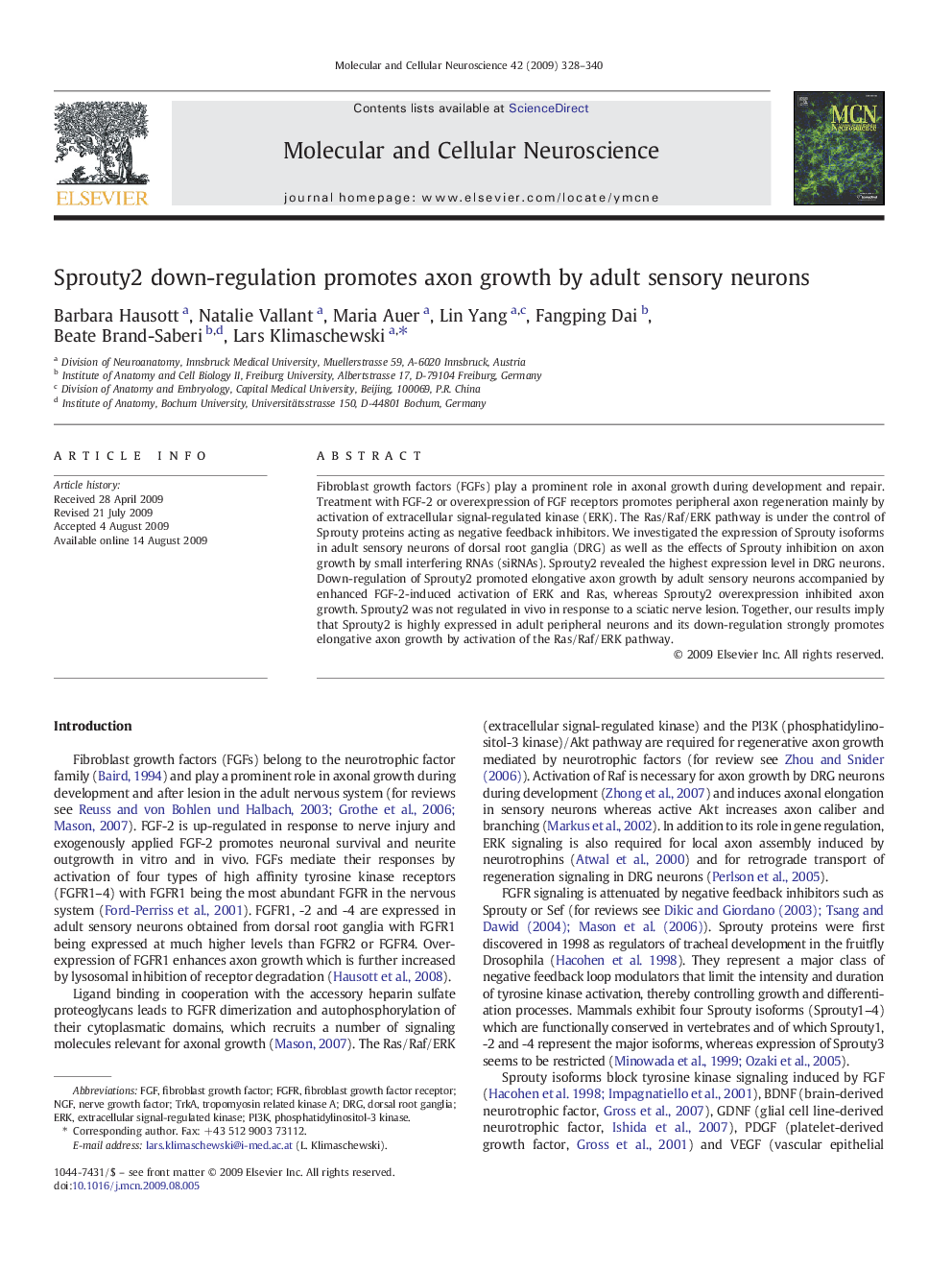| Article ID | Journal | Published Year | Pages | File Type |
|---|---|---|---|---|
| 2198852 | Molecular and Cellular Neuroscience | 2009 | 13 Pages |
Fibroblast growth factors (FGFs) play a prominent role in axonal growth during development and repair. Treatment with FGF-2 or overexpression of FGF receptors promotes peripheral axon regeneration mainly by activation of extracellular signal-regulated kinase (ERK). The Ras/Raf/ERK pathway is under the control of Sprouty proteins acting as negative feedback inhibitors. We investigated the expression of Sprouty isoforms in adult sensory neurons of dorsal root ganglia (DRG) as well as the effects of Sprouty inhibition on axon growth by small interfering RNAs (siRNAs). Sprouty2 revealed the highest expression level in DRG neurons. Down-regulation of Sprouty2 promoted elongative axon growth by adult sensory neurons accompanied by enhanced FGF-2-induced activation of ERK and Ras, whereas Sprouty2 overexpression inhibited axon growth. Sprouty2 was not regulated in vivo in response to a sciatic nerve lesion. Together, our results imply that Sprouty2 is highly expressed in adult peripheral neurons and its down-regulation strongly promotes elongative axon growth by activation of the Ras/Raf/ERK pathway.
